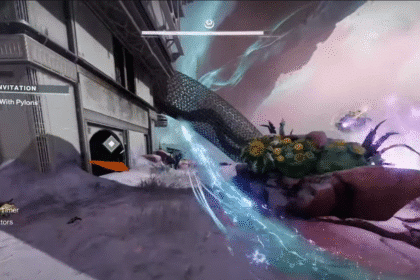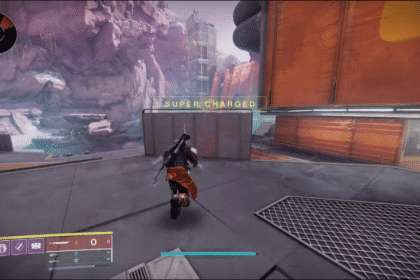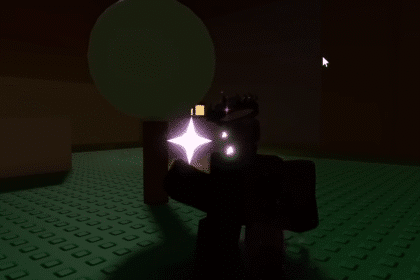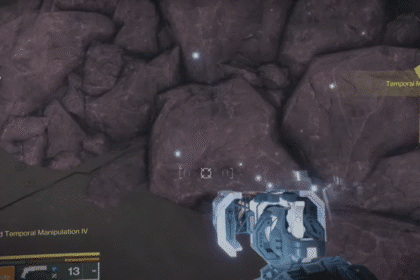The greenhouse in Farming Simulator 25 is a great asset to have as it can allow you to grow some specific types of crops. These crops tend to sell well. However, building a greenhouse is not enough. You’ll also need to take care of it and make sure that it is always functional. We’ll show you exactly how to do this in the simplest way possible. Onto the guide!
Greenhouse Guide
There are many things to learn about Greenhouses in Farming Simulator 25 because of how intricate the game has made greenhouse farming for players to simulate the actual experience. Fortunately for you, once you get through this guide, you’ll have learned all there is to know about how Greenhouses functions.
Greenhouse Categorization: Choosing a Greenhouse
To look at your options for greenhouses, go over to build mode, then to the production chains. You’ll see factories on your screen, scroll over to Greenhouses which is third on the list.
In the base game, you’ll have three different types of Greenhouses.
- Rice Saplings Greenhouses: The first one is the Rice Saplings Greenhouse which we build to grow rice saplings exclusively.
- Regular Greenhouses: The next type of greenhouses are regular ones. They grow chili peppers, spring onions, lettuce, nappa cabbage, strawberries, strawberries, garlic, and tomatoes. The regular greenhouses come in large, medium, and large where each size varies with production rate.
- These greenhouses have some more expensive variants called Glass Greenhouses, which are nicer but more costly versions of the regular ones
- Mushroom Greenhouses: Mushrooms greenhouses grow mushrooms, and they come in three sizes for different production rates similar to all the other greenhouses in the game.

Greenhouse Placement
While placing your greenhouse, you might have to be a little careful. It may be a bit difficult to tell which sides the pallets will spawn on.
For Mushroom greenhouses, to determine which side the greenhouse needs to be placed, take a look at where the water point is.

The Pallets will spawn at the left side of where the water point is. The water point can be identified by a water drop symbol as shown in the image above.
For other greenhouses, the pallet will spawn on the side that’s nearest to the water point.

After you’ve built a greenhouse, the work is still not over. You’ll need to complete a few steps before you can start growing the crops inside.
To get your greenhouse up and running, here’s what you’ll need to do next.
Preparing Your Greenhouse
Each type of greenhouse has its own production menu and there are two ways you can access it. One way is to hit the Esc key and go over to the Production Chains menu (the menu with the icon of a mechanical hand). Here, make sure to select the greenhouse where you want to grow your crops.
Another way is to enter the greenhouse itself and approach the “wrench icon.” If you look at the upper left corner, you’ll see the controls.
The controls are different for the console and PC but both of the platform’s controls will be displayed in the upper left corner.
If the controls are not toggled on, here’s how to access them
- For PC: F1
- For Console: Settings → General Settings → Help Window toggled “ON”
Now, approach the wrench icon and click R manage production point if you use a PC. This will take you directly to the production chains. Here, you’ll learn that for every greenhouse, you’ll need water.

Water Barrel
The first essential thing to do is to purchase and set up a water barrel. To acquire one:
- Go over to the purchase menu
- Go to vehicles
- Look under the “animals” heading
- Head over to the “barrels” category

This barrel will hold large amounts of water, and you should be able to tell by the water icon at the bottom.
You can buy any 4 of the options for your greenhouse, it depends on what you can afford. They all vary in terms of how much water they can carry and what else they can hold alongside the water.
The water barrel will be empty when you first purchase it, and you’ll need to fill it up with water. To do that in the most efficient way, you will need a water container.
For the water mill, you’ll need to:
- Go over to the purchase menu
- Next, click on “construction”
- Click on the tab with the “barn” icon.
- You’ll find sheds, but you’ll need to go over to “container”
From there, scroll and you’ll find a couple of options to choose from. There’s a water tank and a wind wheel with a water tank. The water tank may end up looking bulky on your farm, but it could still be a preference over the wheel. You can choose the option within your budget.

Place the new water tank anywhere on your farm and once it is done constructing, drive your tractor with the water barrel over to the tank. Start filling your barrel with “R” (you’ll find the controls guide on the upper left screen.)
It’s time to take your tractor back to your greenhouse and fill it up with all the water you’ve collected.

Growing Crops
Next, you’ll want to utilize your greenhouse to grow some crops. You don’t need to buy seeds for these because the method for growing crops here is different than growing them on your farm.
Go to the production menu and there you’ll see a whole list of crops you can grow in your greenhouse. You will also have the option of switching between different greenhouses on the left provided you have more than one.

If you wish to grow a certain crop, click on it and then click the “Activate” button at the very bottom of the screen.
Similarly, if you already have a crop growing, you can “change output mode” where the crop starts storing outside of your greenhouse where you’ll find the caution tape.
Clicking on “change output mode” again will start selling your grown crops and clicking it once again will start distributing it. If you’re just starting out, your primary focus should either be storing or selling your grown crops.

Production Information
The production menu reveals a lot of useful information about the status of your greenhouse. It shows you the amount of water your greenhouse can hold, how much of its product your greenhouse produces, and the specific status of each product, as well.
If a crop is in production, the status will say “running” and if you go over to deactivate, it’ll change to “inactive”

If your greenhouse runs out of water, the status section will say, “Materials missing.”
Now, let’s go to “Cycles per month”. Cycles per month indicate how many times the cycle will run in a month. This is set to how many days you have in a month and is not determined by how many times you sleep or go to a new day, (unless you have it set to a day a month).
Furthermore, the number in this section indicates how many times this production will run as long as the materials are available. Compare it to the recipe where it’s shown how much water it uses. The unit is in litres so 3 L of water produces 2 L of chilli peppers.

Next, in Costs per month, running a production will cost you $2 per month. This means if you’re set to two days a month, it’ll cost you a dollar a day or if you’re set to a day a month, you’ll be paying $2 a day, and so on.
Moving Pallets
If you’re using a pc, there are super strength mods out there that enable you to carry the pallets yourself. Another way to move them is through the pallet loaders the game offers. Similarly, you can also check if one of the starting tractors has the option to add a front loader attachment.
Through Tractors

You can toggle through this option and choose your front loader. Whatever front loader attacher you choose while buying the tractor, either Quicke or Hauer. You’ll need to go back to vehicles, click on “front loader categories” and buy the exact one you chose on your tractor.

Another thing to keep in mind before buying your front loader is to look at the horsepower requirement at the bottom and choose the font loader that is closest to the horsepower of the tractor you bought.

Through Dedicated Loaders
Next, you can look at loaders that are designed to move your pallets. When you go over to the “loaders” section under “vehicles”, you’ll also see what tools the store offers that work for that specific loader, making it easier to help you choose what to pick.

Once you go over to the category of tools, find an appropriate pallet fork, and purchase it, you’ll need to hook it up to your loader. Similarly, if you want to use your loader as a regular tractor, you can disconnect the tools attached!
Wrapping Up
And that’s how you water, grow, and sell crops in the greenhouse. We recommend that you get familiar with the output mode option, especially so that you can make the most of your output! However, once you’ve got things running, it can be a hassle to always be waiting. To be able to skip time, check out our how to sleep guide.













